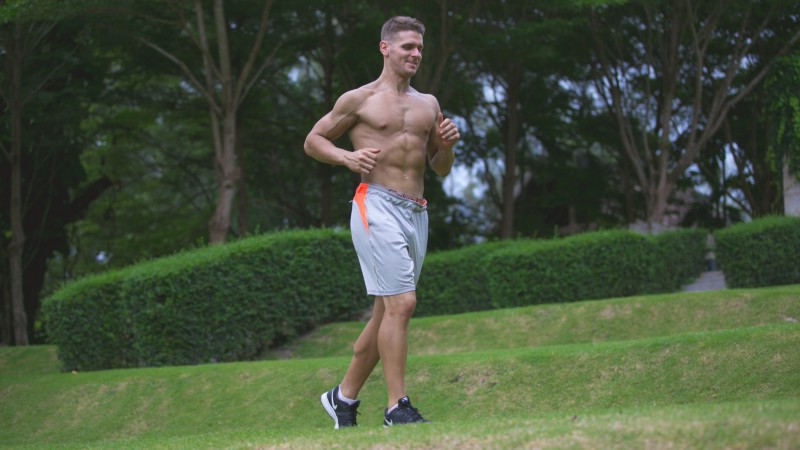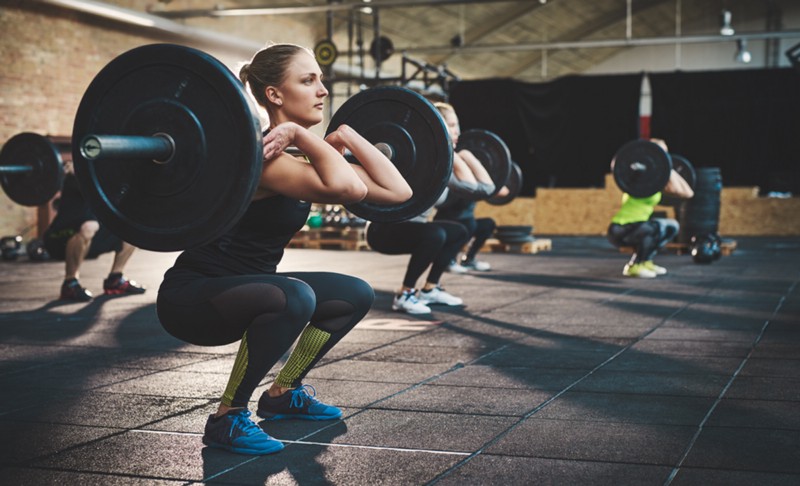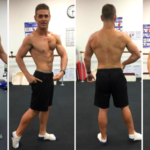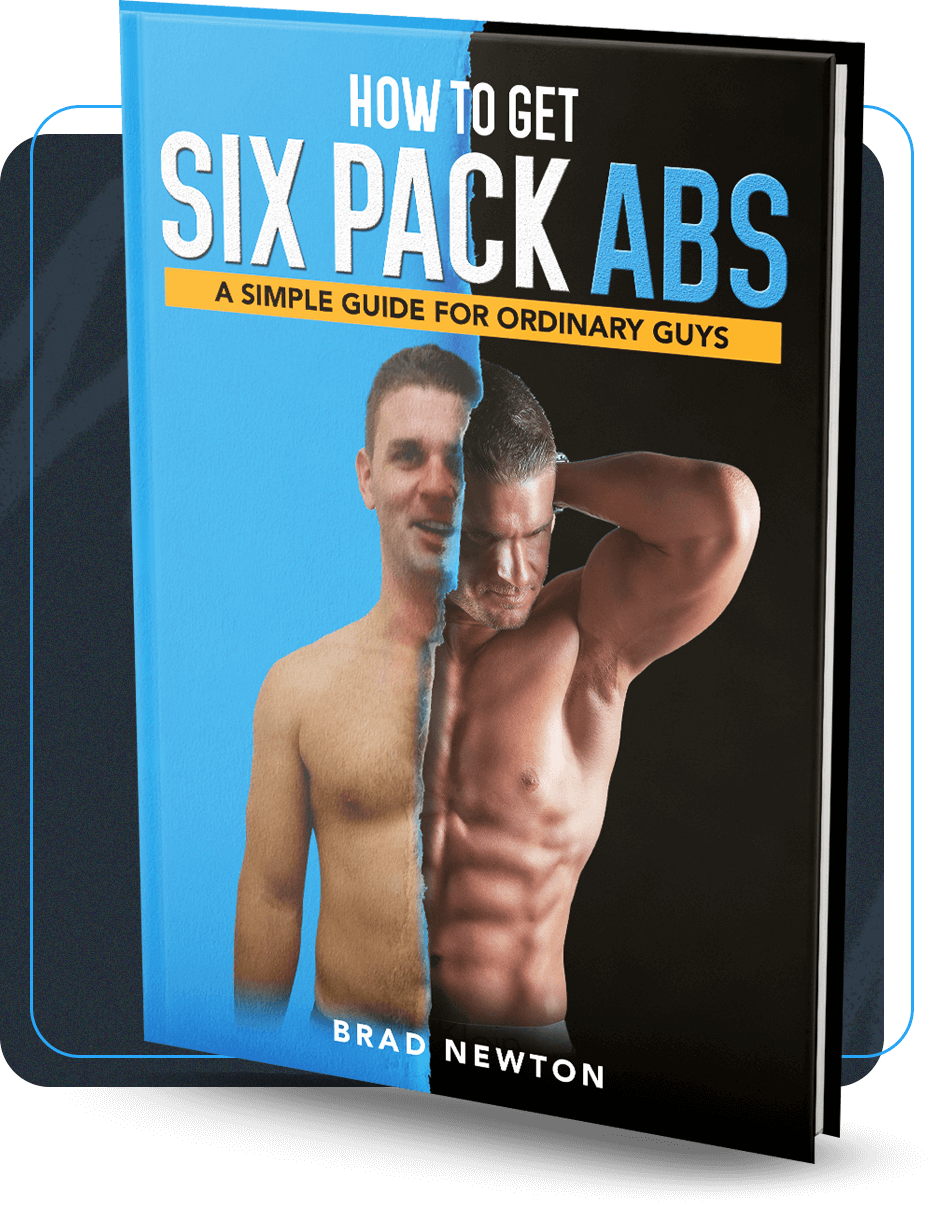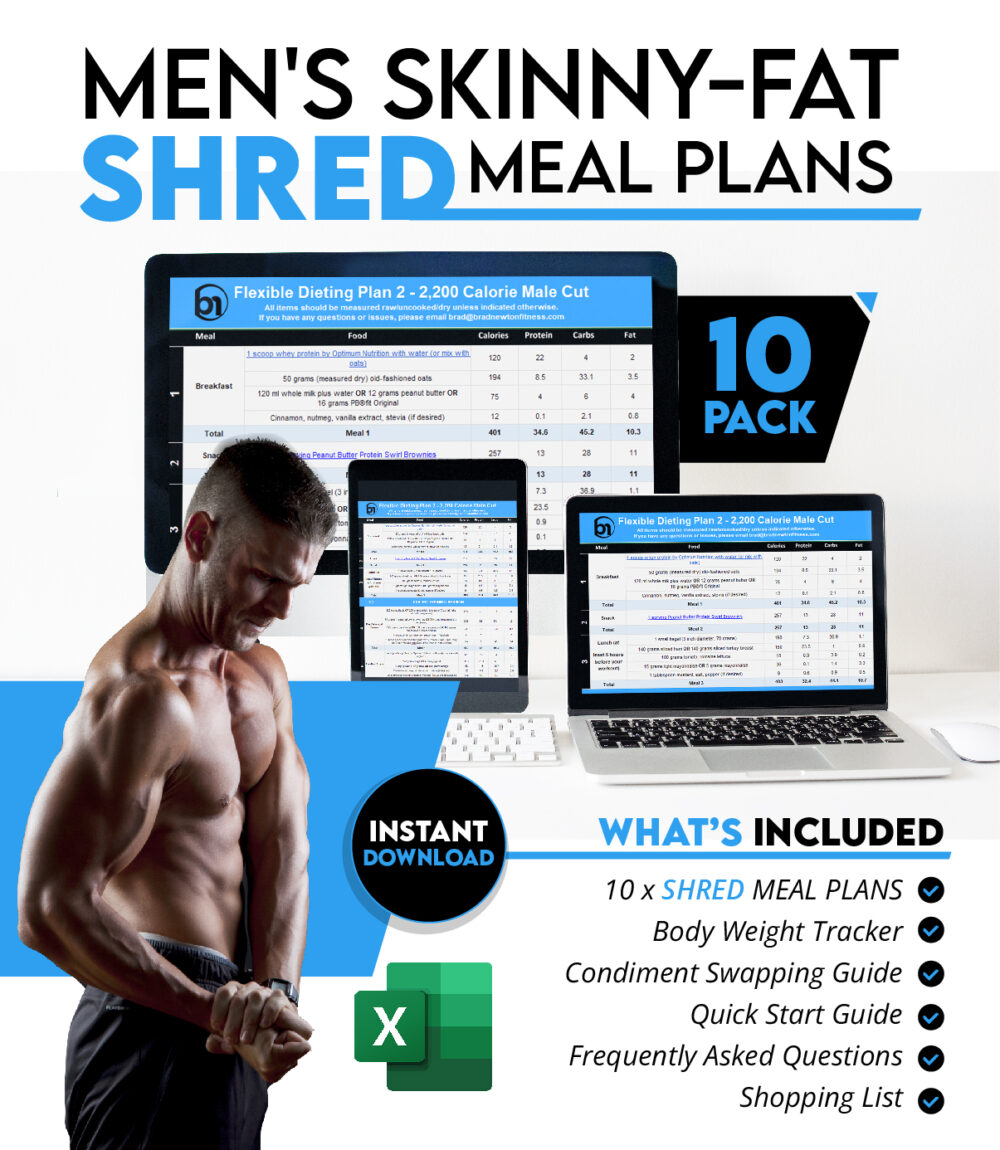Cardio and weights same day? Is it a good idea? This was the same question I asked when I was completely helpless in the gym years ago.
When I started my fitness journey years ago, I would often do 15–20 minutes of treadmill before doing a cable machine routine.
Sometimes, I’d even do weight training and then jump on the treadmill and do sprints, before returning to the dumbbells again in the same session!
And like most people, I would often do 1–2 hour cardio sessions on the treadmill because I was in a hurry to lose fat and get into shape.
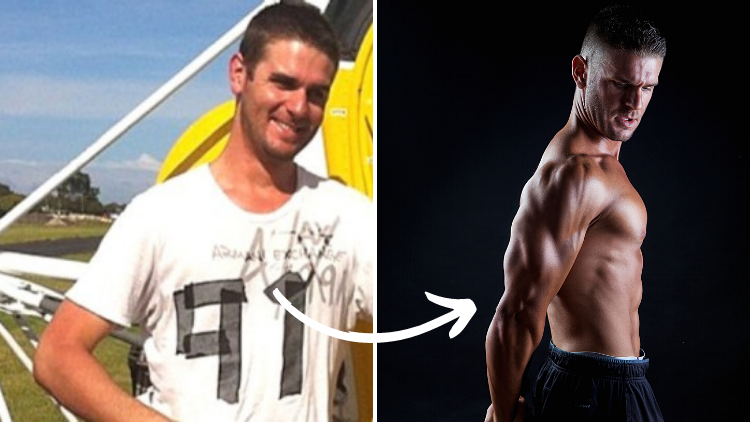
In fact, the “before” photo was taken in Dubai around a time in my life where I was notorious for doing extremely long cardio sessions with almost no weight training — and while eating mostly raw vegan!
It was fair to say that… I was confused. I had it all wrong. I didn’t know what I was doing.
I didn’t know how to “program” my cardio to help build the muscle I needed. But after a lot of self-education, I “figured it out” and used cardio strategically to help get into the best shape of my life.
The common questions I receive are;
- Should I incorporate cardio or completely remove it if my ambition is to maximise gains?
- When is the best time to incorporate cardio? Before or after weight training?
Let’s discuss what I did and use some science to back it up 🙂
Cardio and Muscle Loss
One of the biggest reasons why I grew no muscle in the early stages of my fitness journey was I was undoing my hard weight lifting work from excessive cardio.
There was a meta-analysis of 21 studies where the impact of combining cardio and weight training was investigated.
The researchers found that subjects that combined cardio and weights on the same day saw a 31% drop in muscle growth and a 18% drop in strength.
We all know of the benefits of cardio and weight training, when undertaken separately. But the “interference effect” or concurrent training effect has systematically been shown to attenuate muscle gains, muscular strength, and power, compared to doing weight training separately.
The bottom line is, you should definitely incorporate cardio and weight training into your program — but if your primary ambition is to build muscle and strength — it is best to separate cardio from weight training.
Stop Combining Cardio and Weight Lifting
Most people step into the gym and debate with themselves whether they should do cardio to “warm-up” for weight lifting, or put all of their energy into lifting.
The biggest mistake people make (I’ve done it) is they do cardio at the wrong time and end up stunting their muscle and strength gains.
A research article investigated the impact of undertaking 20-minutes of aerobic exercise immediately before and after with five compound exercises: the squat, bench press, deadlift, push press, and high pull.
In terms of repetition performance, the researchers found that participants’ number of repetitions post-aerobic exercise, dropped by up to 20%!
The Best Time To Do Your Cardio Workouts
Although it is practical for most people to undertake cardio after weight training because they are already in the gym — it still won’t maximise your muscle and strength gains.
Let’s take a look at some studies.
In this study, researchers wanted to investigate the impact of long duration (30-minute) cycling exercise on muscle hypertrophy and strength for bicep weight lifting.
They discovered that untrained lifters who performed a moderate-intensity cycling session 24-hours after bicep training, as opposed to immediately after, gained over twice as much muscle!
The study eludes a few key conclusions;
- Moderate intensity cycling exercise immediately after upper-body resistance training influences the magnitude of muscle hypertrophy and relative value of CSA changes and;
- Timing of endurance training could alter the degree of muscular growth induced by resistance training.

Start Your Transformation Today!
Reach your fitness transformation goals of shredding fat, building muscle, and getting stronger, in the shortest time, without crazy dieting or buying useless sports supplements.
Learn MoreHow Many Hours Separation Between Cardio and Weight Training?
As far apart as possible!
As mentioned earlier, one major reason why I looked exactly the same over 6 months of solid cardio group classes and weight training, was because my Les Mills cardio classes were stunting my muscle and strength gains.
Years later, during my amateur bodybuilding competition season (November 2016 until June 2017) — my cardio and weight lifting sessions were completely separated.
My fitness model competition routine was a 60-minute early morning weight lifting session, followed by a late-night 10–15 minute High Intensity Interval Training (HIIT) session or, 30-minutes of steady-state treadmill or stair master. Cardio was programmed 3 times weekly and usually late night — and never mixed with weight lifting.
Research on 58 amateur rugby players confirms that “Fitness coaches should avoid scheduling 2 contradictory qualities, with less than 6-hour recovery between them to obtain full adaptive responses to concurrent training.”
In other words, if you can lift weights in the morning and do cardio at night (or vice versa), you’ll make a lot more progress! Alternatively, you could do weight lifting only and cardio only days which I’ve also followed in the past.
Weight training and cardio should be separately by at least 6 hours.
You’re Doing Too Much Cardio
When I first started this whole fat loss journey, I was impatient and would often beat myself up with endless hours of cardio!
I’d do 1–2 hours of cardio on the treadmill, ensuring my session would end in time for the Les Mills group cardio class — another 30 minutes of intense cardio!
After all of that hard work, I wasn’t losing weight because after I’d leave the gym, I’d go and eat a huge meal — with no consideration to total calorie intake whatsoever.
The truth is, when you manage your calorie and macronutrient intake (it’s not hard, I will show you how over here), then you actually don’t need to do any cardio to get in great shape!
That’s right! Cardio will help you burn more calories, but consider it a secondary tool in your arsenal of weight loss tools to managing your calories and macronutrient targets (explained in more detail here).
For me, I can cut my body fat percentage down to around 12% without doing any cardio — by just limiting my daily calorie intake to around 2,000–2,300 calories (use my simple online calculator to figure out your own target) — and I’d lose around 1 lb of weight per week.
When I was preparing for my amateur fitness model/ bodybuilding competitions, I would add in cardio much later in my training journey as a last resort to get down to around 7–8% body fat.
The reason is there is only so much calorie restriction you can do before cardio becomes a necessary part of the process. And even then, my cardio is restricted to 2–3 times per week at no more than 30 minutes a session (the exception is my Muay Thai training journey!)
My Muay Thai Fitness Training (Excessive Cardio)
After finishing the World Titles fitness model/amateur bodybuilding competition in June 2017, I decided to begin Muay Thai fitness training in Phuket Thailand.
I wanted to try something completely different to strength training, which I closely followed for many years.
For the past 2 years, I have been visiting these life-changing fitness camps in Phuket, meeting like-minded fitness enthusiasts and people of all ages and walks of life.
The “fitness village” has become the centre of my Fitness Street vlog series which you can watch here.
Typically, the Muay Thai fitness classes are run at 2 hours each, with a morning and afternoon class. That’s 4 hours of Muay Thai fitness per day!
Based on our conversation so far, this is too much cardio if my ambition is to build muscle and strength! More so, too much cardio can lead to muscle loss over time.
Understanding the consequences, I decided to continue with Muay Thai training and keep my protein levels as high as possible, while accepting my new ambition of maximising cardiovascular endurance over strength.
The bottom line is, if your ambition is to build muscle and strength over time, keep your cardio sessions short. If your ambition is cardiovascular endurance, then increase your cardio! I’m also aware that I have muscle memory on my side — so at any moment, I could resume strength training and achieve my former results in half of the amount of time.
The Best Type of Cardio for Weight Lifters
When I prepare for fitness competitions, my choice of cardio is skip rope, treadmill sprints, and the rowing machine.
Despite the science suggesting low impact cardio such as cycling, concurrent to weight lifting (due to less of a decrease in lower body hypertrophy compared to running) — you should always pick a cardio type that you will enjoy!
Personally, I like sprinting more than cycling. And for years, had incorporated sprints into my routine — of no more than 10–15 minutes — to achieve extreme levels of leanness.
In Summary
So I am not suggesting that you completely remove cardio from your weight lifting program.
Cardio should be used as a tool to help bump you over the finish line with achieving fat loss and growing muscle and strength.
Doing more cardio means you’ll make it harder for yourself to build muscle and strength over time.
However, if you keep your cardio sessions relatively short (30-minutes or so) — separate cardio from weight lifting on the same day, or do them on separate days — you’ll see far greater progress in your weight lifting journey as well as reaping the benefits of cardiovascular training.
If I could turn back the clock with my current knowledge, I would do the following;
- Build my work-out routine primarily focused on weight lifting to build muscle and strength, 4–6 times per week (at least one day off weight training per week).
- I’d spend more time focused on managing my daily calorie and macronutrient target.
- If I was time poor and needed to do cardio and weight lifting in the same session — I would do 15-minutes (max) of light cardio after heavy lifting (not before!)
- If I had a day off work, I would do heavy weight lifting at 5–6 am in the morning (my preferred time), and return at 8 pm at night (after work) for 10–15 minutes of HIIT cardio. I’d ensure a minimum of 6 hours between cardio and weight lifting sessions.
- If I felt like only doing 3–4 weight lifting sessions in a single week, I would leave my cardio sessions for my “no weight lifting” days.
- Total cardio for the week would never exceed 2 hours! Even during competition preparation.
- In addition, I learned how to successfully “bulk” to build as much muscle as possible without getting fat and without steroids. I really struggled but I achieved it, and I wrote an article here to show you how to undertake a successful bulk.
That’s pretty much all you need to know 🙂


